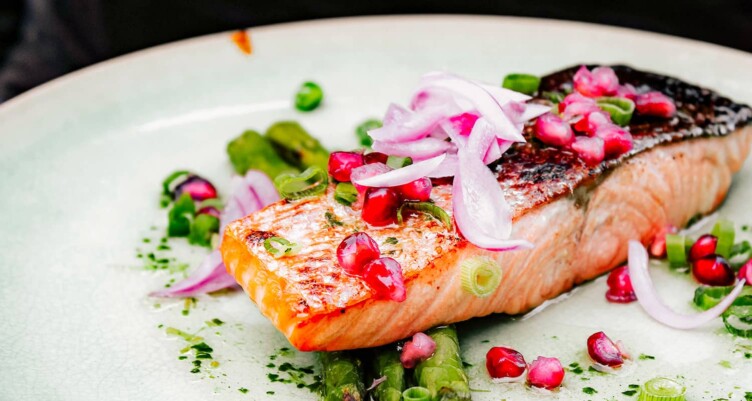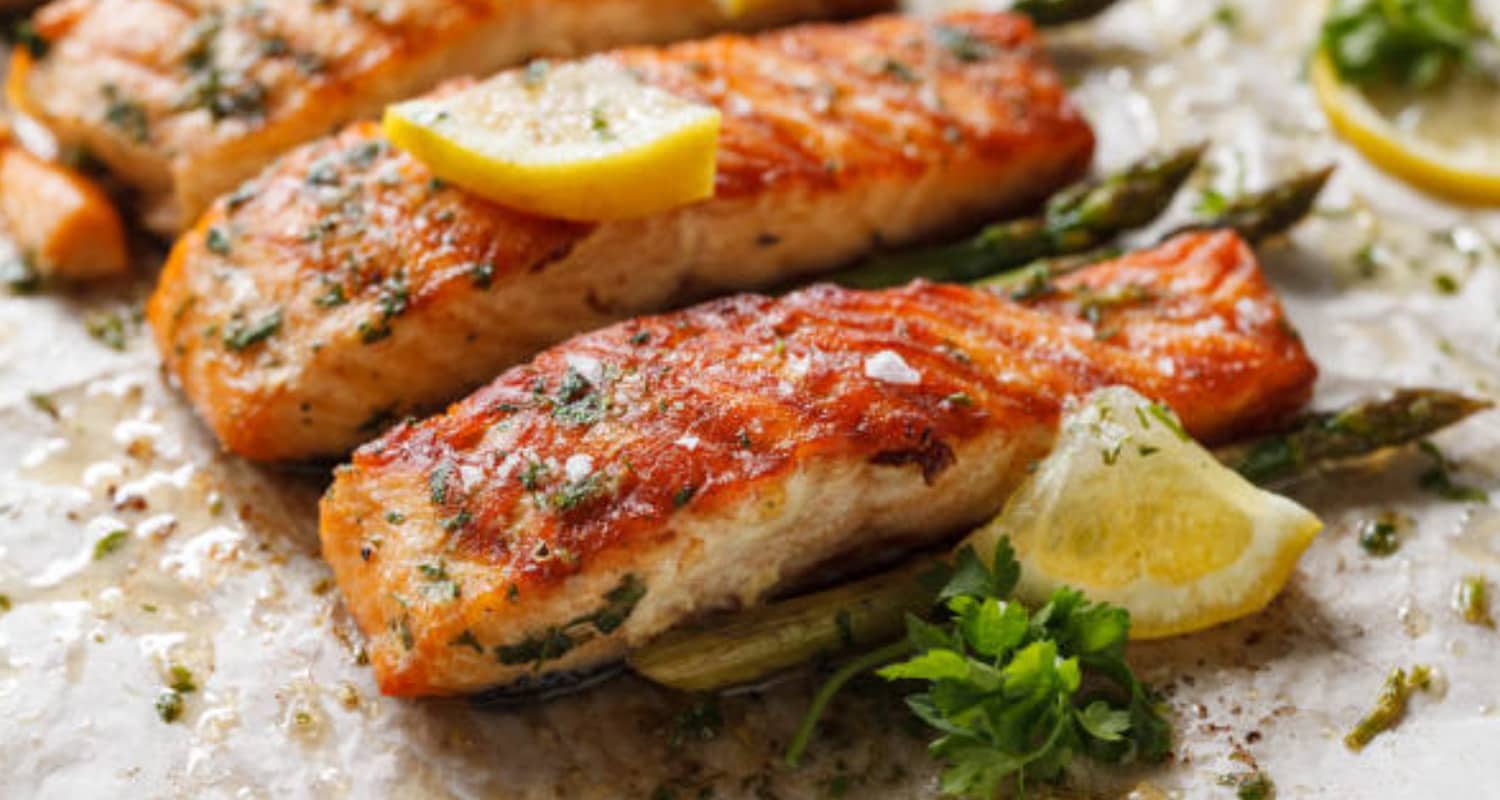Vitamin D Foods

- Vitamin D is a fat-soluble vitamin that helps build and maintain strong bones and a thriving immune system.
- Your body gets vitamin D through sun exposure and through food and supplements, such as fish, fortified milk and orange juice.
- Our Vitamin A-D-K is your one-stop shop for overall wellness. This mood-boosting supplement supports the immune system and offers heart-healthy benefits.
Vitamin D is an essential daily vitamin. It supports the immune system and helps the body absorb calcium and phosphate needed for strong teeth and bones.[1]
Vitamin D is naturally produced in the body when we are exposed to direct sunlight. This explains why it’s sometimes referred to as the “sunshine vitamin.” Sunlight and vitamin D may be linked but since UV rays from the sun can be harmful to the skin, many people have become deficient in vitamin D (it’s estimated that over 42% of Americans have a deficiency).[2]
To ensure your health—and future—are looking bright, the best way to get vitamin D is through foods and supplements. Read on for the nine best vitamin D foods to add to your diet.

The Importance of Vitamin D
Vitamin D is one of the most essential vitamins out there—and for good reason. It keeps your bones strong and supports the immune system so it can ward off illness.
It plays a vital role in other important body functions, such as mood regulation1 and weight management.[3]
Additional benefits of vitamin D include:

Supports immune health
There’s a reason vitamin D is recommended as a cold remedy. Vitamin D keeps the immune system strong so it may fight off any bacteria and viruses that try to invade your system.[4]
Research has even found that vitamin D may play a role in reducing the risk of infections.[5] However, more research needs to be done to prove its effectiveness.
Reduces the risk of autoimmune diseases
The benefits of vitamin D go deeper than warding off a seasonal cold or flu. Vitamin D has also been found to reduce the risk of some autoimmune diseases, such as Crohn’s disease, rheumatoid arthritis and multiple sclerosis (MS). A 2018 study found that higher levels of vitamin D are linked with a reduced risk of developing MS.[6]
How Much Vitamin D Should I Take?
The recommended dose of vitamin D for adults is 15 mcg (600 IU), according to the National Institutes of Health. Adults who are over 71 should aim for 20 mcg (800 IU) per day.[7]
There are many ways to increase vitamin D in your body through food and supplements. What foods have vitamin D? We’ll explore that next.
Foods That Contain Vitamin D

Fish
Many fish are swimming with vitamin D, such as herring, salmon, tuna and sardines.
Pickled or smoked herring may be a small fish, but its nutritional profile is mighty. One fillet (about 143 grams) contains 306 UI of vitamin D.[8] Since fresh fish can be expensive, canned tuna and sardines are delicious, budget-friendly options that deserve a place in your cupboard or fridge.
Sardines in oil contain 193 IU of vitamin D for every 100 grams.[9] But some people may find sardines too fishy tasting so light canned tuna is another quick and delicious option. Canned tuna contains 270 IU of vitamin D in a 100-gram serving, which is over 30% of recommended daily intake.[10] Try making tuna salad or a tuna wrap on whole wheat bread.
Cod Liver Oil
Long before fish oil became a trendy supplement, people were slurping down its cousin, cod liver oil. This form of fish oil is highly nutritious with high amounts of vitamins A and D. One teaspoon provides 56% of the daily value for vitamin D.[11]

Mushrooms
Mushrooms are special for being one of the only non-animal sources of vitamin D due to their exposure to sunlight. Like humans, they produce vitamin D when they soak up the sun. Mushrooms can produce vitamin D3 and D4 but they mostly produce vitamin D2.[12]
The vitamin D content in shitake mushrooms will have you saying, “holy shitake.” Case in point: one piece of shitake mushroom (about 19 grams) contains 3 IU of vitamin D.[13]
Beef Liver
Beef liver may not sound exciting for dinner, but the nutritional profile behind it will leave you feeling pumped.
Besides being a great source of several vitamins and minerals, such as B12, B6 and vitamin K, a single serving of beef liver (about 3.5 ounces) contains 50 IUs of vitamin D.[14]
Orange juice and milk
Add a splash of vitamin D to your day with orange juice. One cup of fortified orange juice contains up to 100 IU of vitamin D.[15]
But as delicious as this juice is, it may not be a suitable beverage option for those on a low-carb diet (a cup of orange juice contains 25.8 grams of carbohydrates[16]) or for those who are diabetic due to the large sugar content.
A cool glass of fortified milk may go down easier. It’s a breakfast favorite that contains 115 IU of vitamin D per cup.[17] Milk also contains calcium, which works in unison with vitamin D to provide stronger bones and teeth.

Vitamin D Supplements
Since vitamin D can be difficult to get through food, vitamin D supplements are a no-brainer solution.
As mentioned earlier, the recommended dose of vitamin D for adults is 15 mcg (600 IU). However, this number depends on several factors, such as:
- Age
- Weight
- Sun exposure
- Skin tone
When’s the best time to take Vitamin D? The answer is whichever time fits your schedule best. But we recommend taking it in the morning with a healthy fat since vitamin D is fat-soluble, which means that it doesn’t dissolve in water. Additionally, research has found that vitamin D can suppress melatonin—aka the hormone that helps you fall asleep.[18]
To ensure your body is sufficient in vitamin D, look no further than Bulletproof vitamin D supplements: Vitamins A-D-K and Vitamins A+D+K Gummies. Both are made with science-backed ingredients to offer bone, heart and immune support.
While most vitamin D supplements only contain vitamin D, our formula contains vitamins A, D and K. When these three essential vitamins are taken together, they work in synergy to help your body work better.
Curious whether you should take gummy vitamins or pills? Once again, this comes down to personal preference. You should take the kind of supplement that will work with your schedule and lifestyle. If you’re looking to mix things up, though, gummies can be a fun and enjoyable way to take vitamins.
Vitamin D, or the “sunshine vitamin,” does a lot of bright things for the body. Most notably, this includes supporting muscle and bone function, reducing inflammation and keeping the immune system healthy.
There are many foods that are high in vitamin D, such as fish, cod liver oil, milk, orange juice and beef liver. Vitamin D supplements also provide an easy and convenient way to prevent your body from becoming deficient in this important vitamin. If you’re still unsure where to start, consult with your healthcare provider for more advice on supplementing your diet with vitamin D.
Sign up for early access to sales, product launches, the latest Bulletproof news and more!



